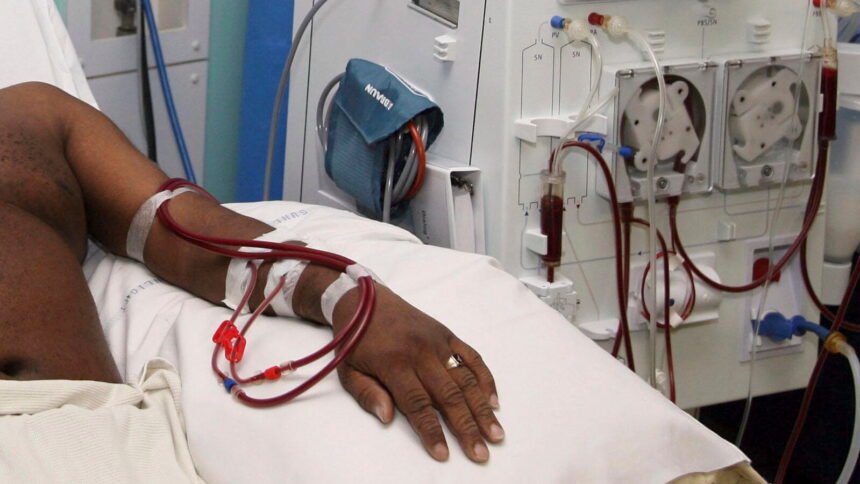The Government of Ghana through the National Health Insurance Authority will from June 1, 2024, roll out the dialysis support system for renal patients in the country. As a result, persons requiring dialysis in the country will see part of the cost borne by the NHIA.
The support comes just days after the nation’s largest hospital, the Korle-Bu Teaching Hospital increased the dialysis fee from GHS380 to GHS491. Though Parliament has denounced ever approving the new fee, the hospital is going ahead with the new schedule.
According to available data, Ghana has a dialysis prevalence of 38.8 per million with at least 1,300 people in the county requiring dialysis. Estimates say there are approximately 15,400 persons requiring dialysis in the country but only about 1,200 are receiving dialysis per Kidney Health International.
A renal patient requires three dialysis sessions a week and 12 in a month. With the cost ranging between GHS400 to GHS491, it is an expensive treatment that has left most of the patients and their families burdened.
However, an allocation of GHS2 million has been made to support their treatment. CEO of the NHIA, Dr Aboagye Da-Costa, said on the Super Morning Show on Joy FM on May 15 that everything is set for the rollout and it will take effect on June 1.
“Based on the money that we had, we knew that we could support two sessions at full cost. For Korle Bu, there is a philanthropy that supports each patient with GH₵380 so we will add the remaining balance so that they don’t pay anything for the two sessions,” Dr Dacosta stated.
He said because patients at other facilities do not get any form of support, the system will cater fully for two sessions for them.
“However, the patients at other facilities don’t get any support at all, and to be fair, we decided to support them fully for two sessions as well,” he explained the modality of implementation.
He explained that the money is ready and the necessary access point will be activated by June 1 to enable patients to access the support.
“All I need now is to develop the BRG code so that when the patients go to the hospitals or facilities they can access this support. The money is available, it is left with the mechanism so by June 1 we should roll this out.”









